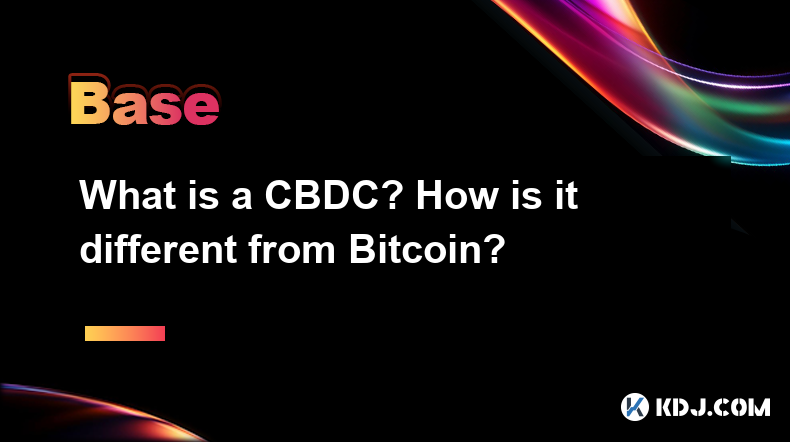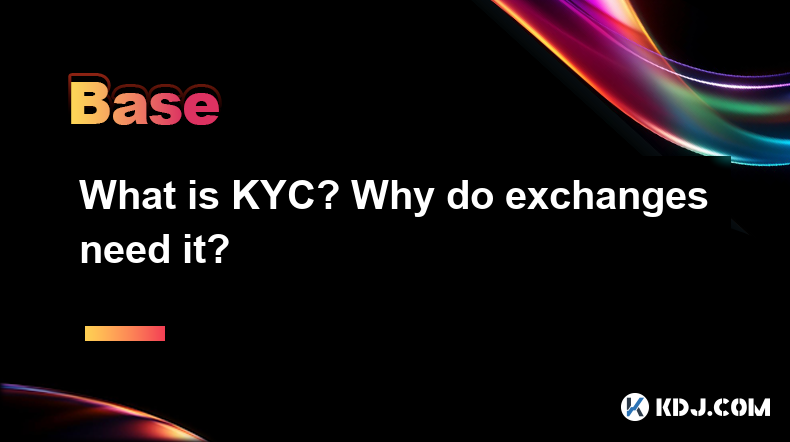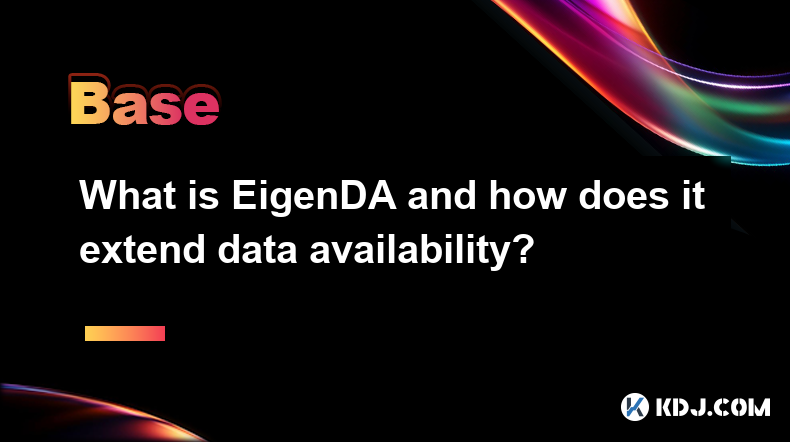-
 Bitcoin
Bitcoin $85,755.8002
1.64% -
 Ethereum
Ethereum $1,645.6905
1.27% -
 Tether USDt
Tether USDt $0.9998
0.02% -
 XRP
XRP $2.1577
1.11% -
 BNB
BNB $589.4257
0.30% -
 Solana
Solana $132.0805
-0.60% -
 USDC
USDC $1.0000
0.01% -
 TRON
TRON $0.2534
-1.14% -
 Dogecoin
Dogecoin $0.1610
-2.84% -
 Cardano
Cardano $0.6440
-0.39% -
 UNUS SED LEO
UNUS SED LEO $9.4349
0.54% -
 Chainlink
Chainlink $12.7648
0.18% -
 Avalanche
Avalanche $20.0359
0.31% -
 Stellar
Stellar $0.2412
-0.10% -
 Toncoin
Toncoin $2.9297
3.26% -
 Sui
Sui $2.2079
-2.65% -
 Hedera
Hedera $0.1679
-0.55% -
 Shiba Inu
Shiba Inu $0.0...01200
-2.02% -
 Bitcoin Cash
Bitcoin Cash $333.3530
-3.38% -
 Litecoin
Litecoin $78.5280
0.39% -
 Polkadot
Polkadot $3.6858
-0.63% -
 Hyperliquid
Hyperliquid $16.2142
3.18% -
 Dai
Dai $0.9998
-0.01% -
 Bitget Token
Bitget Token $4.3249
0.75% -
 Pi
Pi $0.7441
-1.29% -
 Ethena USDe
Ethena USDe $0.9990
0.02% -
 Monero
Monero $212.5820
2.77% -
 Uniswap
Uniswap $5.4137
-0.50% -
 Pepe
Pepe $0.0...07502
0.93% -
 OKB
OKB $52.3495
-1.44%
What is Babylon and how does it enhance Bitcoin security?
Babylon enhances Bitcoin's security by allowing holders to stake their Bitcoin on other blockchains, increasing the economic cost of attacks and fostering a more secure ecosystem.
Apr 13, 2025 at 08:28 am

Babylon is a unique protocol designed to enhance the security of the Bitcoin network by leveraging its unused block space to secure other blockchain networks. The concept behind Babylon revolves around Bitcoin staking, where Bitcoin holders can stake their Bitcoin to participate in the consensus mechanisms of other blockchains, thereby enhancing their security while maintaining the integrity of the Bitcoin network.
How Babylon Works
Babylon operates by allowing other blockchains to use Bitcoin's security through a process known as delegated Proof of Stake (dPoS). In this system, Bitcoin holders can delegate their Bitcoin to validators on other blockchains, who then use these staked Bitcoins to secure their networks. This delegation does not involve moving the Bitcoin from the holder's wallet; instead, it is a commitment that can be verified on the Bitcoin blockchain.
The process begins with a user staking their Bitcoin. This stake is then recorded on the Bitcoin blockchain, and a corresponding entry is made on the blockchain that the user wishes to secure. Validators on this secondary blockchain can then use the staked Bitcoin to participate in the consensus process, ensuring the integrity of their network. In return, the Bitcoin holders receive rewards from the secondary blockchain, typically in the form of that blockchain's native token.
Enhancing Bitcoin Security
One of the primary ways Babylon enhances Bitcoin security is by increasing the economic cost of attacking the network. By allowing Bitcoin to be staked on other blockchains, the total value secured by Bitcoin increases. This means that an attacker would need to control a larger amount of Bitcoin to successfully launch a 51% attack on the network, making such an attack more economically unfeasible.
Additionally, Babylon introduces a new layer of security through interoperability. By connecting Bitcoin with other blockchains, it creates a more interconnected ecosystem where the security of one network can bolster the security of others. This interconnectedness can deter potential attackers, as compromising one network could have ripple effects across the entire ecosystem.
The Role of Bitcoin Staking
Bitcoin staking through Babylon is a novel concept that differs from traditional staking mechanisms used in other blockchains. In traditional staking, users lock up their tokens to participate in the consensus process directly. With Babylon, users stake their Bitcoin to support the consensus process of another blockchain without moving their Bitcoin from their wallet.
This process involves several steps:
- Staking Commitment: Users commit their Bitcoin to be staked by creating a transaction on the Bitcoin blockchain that locks their Bitcoin for a specified period.
- Delegation: The staked Bitcoin is then delegated to validators on the secondary blockchain, who use it to participate in the consensus process.
- Verification: The delegation is verified on both the Bitcoin blockchain and the secondary blockchain, ensuring that the staked Bitcoin is indeed committed and available for use.
- Rewards: Users receive rewards from the secondary blockchain for their staked Bitcoin, which can be claimed and converted back to Bitcoin if desired.
Benefits for Bitcoin Holders
For Bitcoin holders, participating in Babylon offers several benefits. Firstly, it provides an opportunity to earn additional income from their Bitcoin holdings without selling them. This can be particularly attractive for long-term holders who wish to maximize the utility of their Bitcoin.
Secondly, it allows Bitcoin holders to contribute to the security of other blockchains, thereby fostering a more secure and interconnected blockchain ecosystem. This can lead to increased adoption and value for the entire cryptocurrency market, indirectly benefiting Bitcoin holders.
Lastly, by participating in Babylon, Bitcoin holders can diversify their exposure to different blockchain networks without needing to invest in additional cryptocurrencies. This diversification can help mitigate risk and enhance the overall stability of their investment portfolio.
Technical Implementation
The technical implementation of Babylon involves several key components:
- Bitcoin Script: Babylon utilizes Bitcoin's scripting language to create the necessary transactions for staking and delegation. These scripts ensure that the staked Bitcoin is locked and can only be used for the intended purpose.
- Cross-Chain Communication: To enable the delegation of staked Bitcoin to other blockchains, Babylon uses cross-chain communication protocols. These protocols allow for the secure and verifiable transfer of information between the Bitcoin blockchain and the secondary blockchain.
- Validator Nodes: Validator nodes on the secondary blockchain are responsible for using the staked Bitcoin to participate in the consensus process. These nodes must be trusted and capable of handling the additional security responsibilities that come with using staked Bitcoin.
Challenges and Considerations
While Babylon offers significant potential for enhancing Bitcoin security, there are several challenges and considerations to keep in mind. One major challenge is ensuring the security of the cross-chain communication. Any vulnerabilities in this process could potentially be exploited, leading to the loss of staked Bitcoin or the compromise of the secondary blockchain.
Another consideration is the regulatory environment. As Babylon involves the use of Bitcoin in new and innovative ways, it may attract scrutiny from regulators. Ensuring compliance with existing regulations and anticipating future regulatory changes will be crucial for the successful implementation of Babylon.
Additionally, the adoption of Babylon by other blockchains will be a key factor in its success. For Babylon to effectively enhance Bitcoin security, a significant number of blockchains must integrate it into their consensus mechanisms. This will require collaboration and coordination across the cryptocurrency industry.
Frequently Asked Questions
Q: Can I unstake my Bitcoin at any time?
A: The ability to unstake your Bitcoin depends on the specific terms set by the secondary blockchain you are staking on. Some blockchains may allow for immediate unstaking, while others may require a waiting period or impose penalties for early unstaking. It is important to review the terms and conditions of the secondary blockchain before committing your Bitcoin.
Q: How are the rewards from staking distributed?
A: Rewards from staking are typically distributed by the secondary blockchain in its native token. These rewards can be claimed by the Bitcoin holder and, if desired, converted back to Bitcoin through a decentralized exchange or other trading platform. The exact mechanism for claiming and converting rewards will vary depending on the secondary blockchain.
Q: Is Babylon compatible with all blockchains?
A: Babylon is designed to be compatible with a wide range of blockchains that use delegated Proof of Stake (dPoS) or similar consensus mechanisms. However, the specific implementation details may vary, and not all blockchains may be immediately compatible. The success of Babylon will depend on the willingness of other blockchains to integrate and adapt their systems to work with it.
Q: What happens if the secondary blockchain is compromised?
A: If the secondary blockchain is compromised, the staked Bitcoin remains secure on the Bitcoin blockchain. The delegation of staked Bitcoin to the secondary blockchain is a commitment that can be verified but does not involve moving the Bitcoin. Therefore, even if the secondary blockchain is compromised, the staked Bitcoin cannot be accessed or stolen.
Disclaimer:info@kdj.com
The information provided is not trading advice. kdj.com does not assume any responsibility for any investments made based on the information provided in this article. Cryptocurrencies are highly volatile and it is highly recommended that you invest with caution after thorough research!
If you believe that the content used on this website infringes your copyright, please contact us immediately (info@kdj.com) and we will delete it promptly.
- BlockDAG's Keynote 3 Reveals Mainnet Launch Plans! SHIB & TON Whale Activity Surges
- 2025-04-15 14:00:12
- The April Shake-Up: Exploring Opportunities in the Altcoin Market
- 2025-04-15 14:00:12
- “The stock market is a device for transferring money from the impatient to the patient.”
- 2025-04-15 13:55:13
- 4 Coins to Watch in the Race to $1 by 2025
- 2025-04-15 13:55:13
- #Binance **⚠️ P2P Scam Warning**
- 2025-04-15 13:50:12
- Why This Utility Token Going Viral More Than Meme; Dogecoin, Shiba Inu & Pepe Coin?
- 2025-04-15 13:50:12
Related knowledge

What is a CBDC? How is it different from Bitcoin?
Apr 15,2025 at 01:49pm
A Central Bank Digital Currency (CBDC) represents a digital form of a country's fiat currency, issued and regulated by its central bank. Unlike traditional physical currencies, CBDCs exist purely in digital form, offering a new way for governments to manage their monetary systems. CBDCs are designed to provide the benefits of digital currencies while ma...

What is KYC? Why do exchanges need it?
Apr 15,2025 at 02:01pm
KYC, or Know Your Customer, is a process used by businesses, including cryptocurrency exchanges, to verify the identity of their clients. The primary goal of KYC is to prevent illegal activities such as money laundering, fraud, and terrorist financing. By implementing KYC procedures, exchanges can ensure compliance with regulatory requirements and maint...

How to buy Dogecoin in China?
Apr 14,2025 at 04:35pm
How to buy Dogecoin in China (DOGE) Dogecoin is a decentralized digital currency known for its iconic dog pattern. Here are the detailed steps on how to buy Dogecoin in China. step 1. Register a digital currency exchange account First, you need to register an account on a digital currency trading platform regulated by China. It is recommended to choose ...

Ouyi Exchange web version registration portal
Apr 15,2025 at 01:28pm
Ouyi Exchange web version registration guide: Get started quickly How to create an account on the Ouyi Exchange web version? The process of creating an Ouyi Exchange web version account is very simple, just follow the following steps: Browse to the official website of Ouyi Exchange. Click the "Register" option in the upper right corner of the ...

What is Delayed Encryption technology?
Apr 11,2025 at 10:42pm
What is Delayed Encryption Technology? In the world of cryptocurrencies, security is paramount. One of the innovative solutions to enhance the security of digital transactions is Delayed Encryption Technology. This technology introduces a layer of security by encrypting data with a time delay, ensuring that the information remains secure until a specifi...

What is EigenDA and how does it extend data availability?
Apr 11,2025 at 05:28pm
EigenDA is a groundbreaking solution within the cryptocurrency ecosystem designed to enhance data availability across blockchain networks. Developed by EigenLayer, EigenDA aims to address the critical issue of data availability, ensuring that all participants in a blockchain network can access the necessary data to verify transactions and maintain the i...

What is a CBDC? How is it different from Bitcoin?
Apr 15,2025 at 01:49pm
A Central Bank Digital Currency (CBDC) represents a digital form of a country's fiat currency, issued and regulated by its central bank. Unlike traditional physical currencies, CBDCs exist purely in digital form, offering a new way for governments to manage their monetary systems. CBDCs are designed to provide the benefits of digital currencies while ma...

What is KYC? Why do exchanges need it?
Apr 15,2025 at 02:01pm
KYC, or Know Your Customer, is a process used by businesses, including cryptocurrency exchanges, to verify the identity of their clients. The primary goal of KYC is to prevent illegal activities such as money laundering, fraud, and terrorist financing. By implementing KYC procedures, exchanges can ensure compliance with regulatory requirements and maint...

How to buy Dogecoin in China?
Apr 14,2025 at 04:35pm
How to buy Dogecoin in China (DOGE) Dogecoin is a decentralized digital currency known for its iconic dog pattern. Here are the detailed steps on how to buy Dogecoin in China. step 1. Register a digital currency exchange account First, you need to register an account on a digital currency trading platform regulated by China. It is recommended to choose ...

Ouyi Exchange web version registration portal
Apr 15,2025 at 01:28pm
Ouyi Exchange web version registration guide: Get started quickly How to create an account on the Ouyi Exchange web version? The process of creating an Ouyi Exchange web version account is very simple, just follow the following steps: Browse to the official website of Ouyi Exchange. Click the "Register" option in the upper right corner of the ...

What is Delayed Encryption technology?
Apr 11,2025 at 10:42pm
What is Delayed Encryption Technology? In the world of cryptocurrencies, security is paramount. One of the innovative solutions to enhance the security of digital transactions is Delayed Encryption Technology. This technology introduces a layer of security by encrypting data with a time delay, ensuring that the information remains secure until a specifi...

What is EigenDA and how does it extend data availability?
Apr 11,2025 at 05:28pm
EigenDA is a groundbreaking solution within the cryptocurrency ecosystem designed to enhance data availability across blockchain networks. Developed by EigenLayer, EigenDA aims to address the critical issue of data availability, ensuring that all participants in a blockchain network can access the necessary data to verify transactions and maintain the i...
See all articles























































































